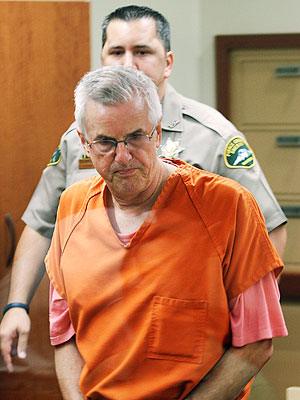
Rodrigo Cruz for The New York Times
Amy and Rob Carr in Guatemala with Geovany Archilla Rodas, whom they have been trying to adopt since 2007. More Photos »
GUATEMALA CITY — The little boy flies like an airplane through the hotel, his arms outstretched. Then he leaps like a superhero, beaming as the red lights on his new sneakers flash and flicker, while the American couple he is with dissolve in laughter.
He calls them Mamá and Papi. They call him Hijo — Son. He corrects their fledgling Spanish. They teach him English. “Awe-some,” he repeats carefully, eyeing his new shoes.
To outsiders, they look like a family. But Geovany Archilla Rodas, an impish 6-year-old boy with spiky black hair, lives in an orphanage on the outskirts of this capital city. The Americans — Amy and Rob Carr of Reno, Nev. — live a world away. They are the only parents he has ever known.
They have been visiting him every year, usually twice a year, since he was a toddler, flying into this Central American city for a few days at a time to buy him clothes and to read him stories, to wipe his tears and to tickle him until he collapses in giggles at their hotel or in the orphanage.
Yet half a decade after agreeing to adopt him, the Carrs still have no idea when — or if — they will ever take Geovany home.
“There’s this hope in you that doesn’t want to die,” said Mrs. Carr, who arrived here last month with her husband, more determined than ever to cut through the bureaucracy. “In my heart, he’s my son.”
The Carrs are among the 4,000 Americans who found themselves stuck in limbo when Guatemala shut down its international adoption program in January 2008 amid mounting evidence of corruption and child trafficking. Officials here and in Washington promised at the time to process the remaining cases expeditiously.
But officials and prospective parents say that bureaucratic delays, lengthy investigations and casework hobbled by shortages of staff and resources have left hundreds of children stranded in institutions for years. Today, 150 children — including Geovany — are still waiting in orphanages and foster homes here while the Guatemalan authorities weigh whether to approve their adoptions to families in the United States.
Stalled adoptions are not unique to Guatemala. Concerns about fraud, including allegations of kidnappings and baby selling, have held up American adoptions for months, and sometimes years, from Ethiopia, Kyrgyzstan, Vietnam and Haiti. The State Department currently refuses to approve adoptions from Cambodia and Vietnam to pressure those countries to install safeguards so that children with biological relatives who can care for them are not shipped overseas, officials say.
But the problem of delayed adoptions is particularly acute in Guatemala, a country of about 14 million people, which in 2007 ranked second only to China in the number of children sent to the United States.
As officials here have spent months, and then years, trying to distinguish legitimate adoptions from fraudulent ones, many hopeful couples who had painted nurseries, hosted baby showers and bought brand new cribs began to despair as the infants they had hoped to adopt took their first steps and spoke their first words without them.
Faced with a seemingly endless process, scores of prospective parents quietly abandoned their efforts to adopt the children they once considered their own, officials say.
Guatemalan officials said they never intended for the children to remain institutionalized for so long. They say they have had to thoroughly investigate the cases, some of which are complicated by inconsistencies, false documents and questionable stories, to ensure that the children were not bought or stolen from impoverished rural women.
“These are very vulnerable people, who can be easily taken advantage of,” said Elizabeth Orrego de Llerena, president of the board of directors of the National Adoption Council, which is processing the adoption cases once they have been cleared by the child welfare investigative branch. “At times, they have not had the opportunity to make a complaint or to seek solutions.”
Ms. Orrego de Llerena said that the investigations, which typically include searches for biological relatives, were necessary to ensure that children were given up voluntarily.











